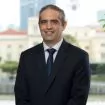Introduction
Private equity activity in the Cayman Islands has been robust in 2020, notwithstanding volatile markets and the broader challenges presented by various events, most notably COVID-19.
Investors appear to have retained a healthy appetite for alternative assets as they seek more attractive returns and longer maturity periods than many other asset classes offer, particularly in a likely prolonged period of low or negative interest rates and bond yields.
Sponsors have been responsive to this environment, structuring and offering certain products that offer strategies tailored to the current environment, such as market dislocation and special situations opportunities, or leverage time limited Government-led initiatives such as the Federal Reserve's TALF program.
The Cayman Islands has been well-positioned to respond to this volatile and challenging global environment and retain its preeminent offshore position due to its legislative and regulatory framework, tax neutral status, flexible structuring options, respected legal system developed from English common law and experienced and responsive service providers.
The Private Funds Law
The most notable development in the Cayman Islands in the last 12 months has been the introduction and implementation of the Private Funds Law that provides for registration of closed-ended collective investment vehicles with the Cayman Islands Monetary Authority (CIMA). Approximately 12,000 private funds have registered under this new regime during a short transitional period that concluded in August 2020. The Private Funds Law introduces a proportionate regulatory overlay for closed-ended funds and has several benefits that include:
- allowing Cayman Islands private funds to be distributed more broadly to investors who are required to invest in regulated products (eg, whether due to internal policies or the securities laws applicable in their jurisdiction of domicile);
- streamlining set up and registration formalities for Cayman Islands private funds by way of simplified compliance procedures and wider marketing opportunities to investors in various jurisdictions;
- facilitating more efficient regulator-to-regulator confirmations where appropriate; and
- broadening the types of vehicles that sponsors or investors look to establish in the Cayman Islands, notably where there is a requirement for an entity to be regulated for trading purposes or for the purposes of making a specific portfolio investment.
Cayman Islands regulation
Cayman Islands regulation is, generally, fund-level focused and there is no requirement for a non-Cayman Islands manager of a private fund domiciled in the Cayman Islands to be regulated in the Cayman Islands. Most managers of private funds are not domiciled in the Cayman Islands and are regulated by various onshore regulators such as the US Securities and Exchange Commission, the UK's Financial Conduct Authority, the Hong Kong Monetary Authority or the Japanese Financial Services Agency. A Cayman Islands-registered manager would be subject to oversight by CIMA.
This framework enables sponsors, allocators and investors alike to legislate freely their contractual arrangements, which is particularly helpful as strategic investors seek alternatives to traditional co-mingled fund structures and vehicle types.
The Cayman Islands' offering is also well-positioned for alternative structures; ranging from separate accounts, funds of one through "permanent capital" strategic transactions, end-of-life liquidity options and GP minority equity stake deals.
Transactional context
While the Cayman Islands is most commonly associated with private equity fund establishment, whether main, feeder/blocker, parallel, alternative investment or co-investment vehicles, there continues to be increasing demand for Cayman Islands structures in transactional contexts, particularly buy-out and secondary transactions, including as management holding vehicles.
The nature, scope and volume of work being undertaken in the Cayman Islands gives rise to a number of trends and developments which reflect emerging technologies and work practices, a mature funds industry and the multi-jurisdictional dimension of offshore practice.
Fund Structuring
A key reason for the jurisdiction's success is the range of Cayman Islands vehicles which are available to sponsors/managers, enabling them to structure closed-ended fund products in a manner which meets the diverse profile of investors domiciled in geographically disparate regions.
The most popular Cayman Islands-domiciled vehicles for structuring investment vehicles are:
- exempted limited partnerships (ELPs);
- exempted companies; and
- limited liability companies (LLCs).
There has also been increased interest from Japan in unit trusts that are tailored for private equity purposes. The Cayman Islands has also enacted legislation for a limited liability partnership vehicle that is anticipated to be available for use in late-2020.
The Cayman Islands limited liability company, similar to the Delaware variant, was introduced in mid-2016. There have been in excess of 3,000 Cayman Islands LLCs registered since then.
The popularity of exempted companies and ELPs has been unaffected by the introduction of LLCs. By way of illustration, there has been consistent year-on-year growth in the number of ELPs registered, averaging over 10% per annum.
Regional differences
There are nuanced regional differences in the types of vehicles being used for private equity mandates. In the North American and European markets, most primary, feeder, parallel, alternative investment and co-investment vehicles are typically formed as an exempted limited partnership unless a tax blocker is required.
In onshore-offshore fund structures, the ability to provide symmetry between the offshore fund vehicles and their equivalent onshore counterparts (notably Delaware and Luxembourg limited partnerships) can lead to greater ease and cost efficiency of fund administration, pass-through tax treatment and has helped to better align the rights of investors between the different vehicles in a fund structure.
The exempted company is less regularly employed as a fund vehicle other than with respect to certain types of target investors and with reference to certain assets. Its key feature - being a corporate vehicle with separate legal personality - lends these vehicles to being most commonly used as general partner, manager, blocker or holding vehicles (although one of the exempted company variants, the segregated portfolio company, can be an attractive option for managers targeting certain Middle Eastern-based or family office investors).
The LLC has been an appealing alternative for general partner, upper tier, manager and co-investment vehicles. The absence of share capital (and the absence of the need to maintain a share register), combined with the ability to intuitively track and record the capitalisation of an LLC and its distributions, has also led to LLCs being attractive for blocker, aggregator and holding vehicle applications. Because a member is not required to make a contribution but may benefit from profit allocations, the LLC has been adopted for certain employee award and grant schemes.
Japan
In a Japanese context, a unit trust structure may offer tax and other regulatory related benefits to certain types of investors when compared to a limited partnership vehicle. The unit trust is familiar to Japanese investors and can be customised to incorporate characteristics of a traditional private equity fund, including capital call features, clawbacks and defaulting investor provisions.
This development is in response to traditionally risk-averse Japanese institutions recalibrating their investment portfolios and allocating to private equity in a search for yield. As with many western states, Japanese Government bond yields have been stuck at, or near, zero per cent.
There is continued interest from Japanese institutional investors in private equity as an asset class. Some of the largest institutional investors, such as Japan Post Bank, are now in their fifth year of their private equity investment program in which they are allocating significant capital each year to global private equity funds. In addition, five major Japanese trading houses recently attracted a combined USD6 billion investment from Warren Buffet's Berkshire Hathaway, who are also reportedly shifting their attention from commodities to venture capital and private equity. Private equity is also proving popular with Japanese life insurers and, more recently, a number of the regional banks who are similarly rebalancing portfolios and shifting assets into private equity in the search for higher yields.
Parallel fund vehicles
A number of managers will utilise a mix of parallel fund vehicles to maximise the global distribution of their funds and manage downstream assets. By way of example, managers targeting investors in multiple regions, including Europe, may look to offer parallel Cayman Islands, Delaware and Luxembourg fund options or a variation on that arrangement, such as a master-feeder fund structure with a Cayman Islands closed-ended fund vehicle operating as a feeder fund into a European (such as an Irish or Luxembourg) master fund. Similarly, a Cayman Islands closed-ended fund vehicle may set up holding or trading vehicles in various European jurisdictions (such as Ireland or Luxembourg) to facilitate its investment objectives.
To view the full article, please click here.
This article first appeared in the Global Practice Guide: Private Equity 2020 published by Chambers and Partners in November 2020.
The content of this article is intended to provide a general guide to the subject matter. Specialist advice should be sought about your specific circumstances.




